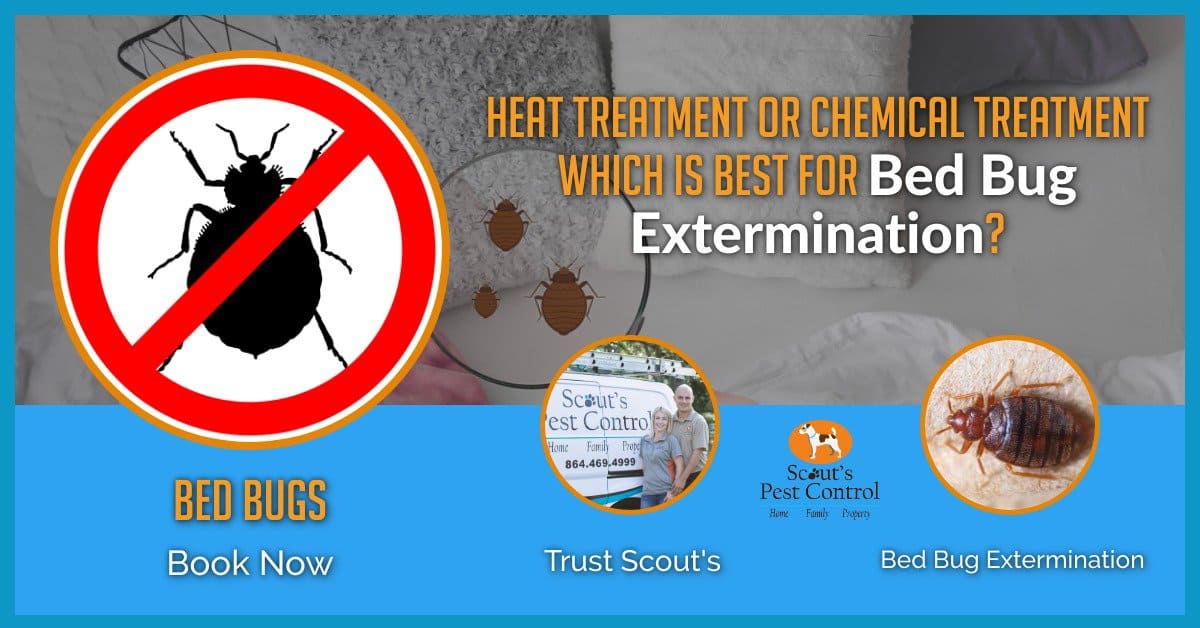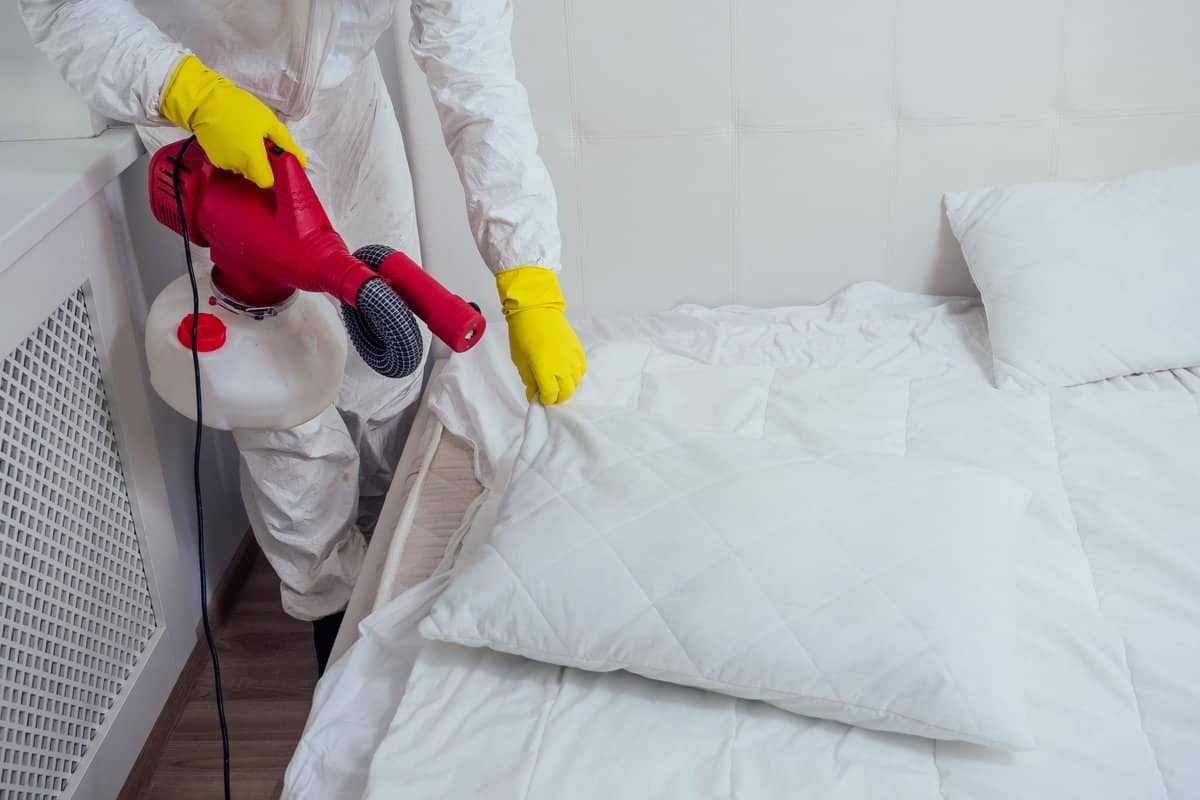Relied On Kings Bug Control Cincinnati OH: Professional Services
Relied On Kings Bug Control Cincinnati OH: Professional Services
Blog Article
A Breakdown of the Different Types of Insect Control Solutions
In the realm of insect control, a plethora of approaches exist to deal with and combat the presence of unwanted creatures. As we browse through the diverse landscape of insect control remedies, recognizing the ins and outs of each technique ends up being critical in determining the most reliable course of action.
Chemical Pesticides
Chemical chemicals are commonly utilized in bug control to effectively get rid of a vast array of bugs and various other pests. These chemicals function by targeting the worried system of the pests, interrupting their normal functions, and inevitably resulting in their death. Using chemical pesticides has been a staple in the parasite control industry for years because of their performance and fast outcomes.

Nonetheless, it is important to make use of chemical pesticides with care because of their possible hazardous results on the environment and non-target species. Incorrect application or overuse of these pesticides can bring about air pollution, harm to useful bugs, and resistance advancement in bug populaces. As a result, it is essential to comply with safety standards and policies when making use of chemical pesticides for pest control.
Biological Control Approaches
Considering the possible ecological influences and threats related to chemical pesticides, biological control techniques use an even more lasting technique to taking care of pest populations. Organic control involves making use of all-natural opponents, such as pathogens, predators, and parasites, to reduce insect populaces. This method is usually extra targeted, impacting only the specific pest varieties while lessening damage to helpful insects, human beings, and the setting.

One benefit of biological control is its lasting performance. Once established, all-natural enemies can assist control pest populations constantly without the need for repeated applications of pesticides. In addition, organic control is typically more cost-effective and can aid decrease pesticide resistance in parasite populations gradually. Generally, biological control methods offer a ecologically friendly and lasting option to pest monitoring.

Mechanical Insect Control
Mechanical bug control entails the physical manipulation or removal of pests to handle their populations effectively. This technique is usually used in conjunction with various other bug control methods for detailed parasite management. One common example of mechanical pest control is utilizing catches to capture rodents or bugs. These traps can be established in critical places where parasites are known to dwell, aiding to decrease their numbers.
Another mechanical approach is making use of obstacles such as fences, webs, or screens to obstruct bugs from going into specific areas. By literally avoiding parasites from accessing a place, the possibility of invasions or damage can be substantially minimized. Furthermore, hand-operated methods like handpicking bugs off plants or structures can be reliable for smaller-scale problems.
While mechanical parasite control approaches can be labor-intensive, they offer a non-chemical alternative that can be eco pleasant and lasting. By targeting insects straight, mechanical control techniques can help keep parasite populaces in check without counting on chemicals.
Natural Remedies
Utilizing natural remedies for parasite control offers a environment-friendly and lasting strategy to handling bug populations without considering chemical treatments. Natural solutions include utilizing substances obtained from plants, minerals, or various other naturally happening resources to discourage or eliminate bugs. Planting specific herbs like basil, mint, or lavender around your property can ward off bugs due to their solid aromas. Diatomaceous planet, a powder made from fossilized algae, can be made use of to combat pests like ants, roaches, and bed bugs by dehydrating their exoskeletons.
Additionally, crucial oils such as tea tree oil or neem oil have insecticidal homes that can effectively manage parasites while being risk-free for the setting. An additional natural solution is introducing beneficial bugs go now like ladybugs or hoping mantises to your garden to exploit unsafe bugs. By incorporating these natural solutions into insect administration methods, people can decrease their reliance on synthetic chemicals and promote a healthier, more well balanced ecological community.
Integrated Parasite Monitoring
Integrated Parasite Management (IPM) is a comprehensive technique that integrates various techniques to successfully manage pest populaces while lessening risks to human wellness and the environment. IPM entails the combination of several pest control techniques such as biological control, environment manipulation, alteration of cultural practices, and using immune crop selections. By using a mix of these techniques, IPM intends to decrease dependence on chemical pesticides, which can have adverse influence on ecosystems and human wellness.
One secret facet of IPM is the focus on prevention. By carrying out actions to avoid bug infestations prior to they happen, such as preserving correct sanitation and sealing entrance points, the need for responsive pest control measures is decreased. Surveillance and routine assessments play a crucial function in IPM, allowing for early detection of parasite problems and prompt treatment.
Verdict
In final thought, the numerous sorts of pest control options supply a variety of options for properly handling insect invasions. Chemical pesticides offer fast removal however might have ecological threats. Biological control techniques use all-natural killers to control insects. Mechanical parasite control entails physical obstacles or traps. All-natural solutions offer non-toxic alternatives. Integrated Parasite Management incorporates numerous strategies for an all natural strategy to pest control. Each approach has its very own advantages and downsides, and selecting the most appropriate solution relies on the certain bug problem at hand.
Chemical pesticides are commonly utilized in parasite control to efficiently eliminate a large variety of bugs and other parasites.Mechanical pest control entails the physical manipulation or elimination of insects to handle their populaces effectively (Kings pest control Cincinnati).Using natural treatments for pest control offers a sustainable and environmentally friendly technique to managing insect populations without resorting to chemical interventions.Integrated Bug Monitoring (IPM) is a thorough technique that resource integrates numerous methods to successfully manage pest populations while minimizing dangers to human health and wellness and the environment.In verdict, the different kinds of bug control solutions offer a variety of alternatives for efficiently taking care of website link bug infestations
Report this page